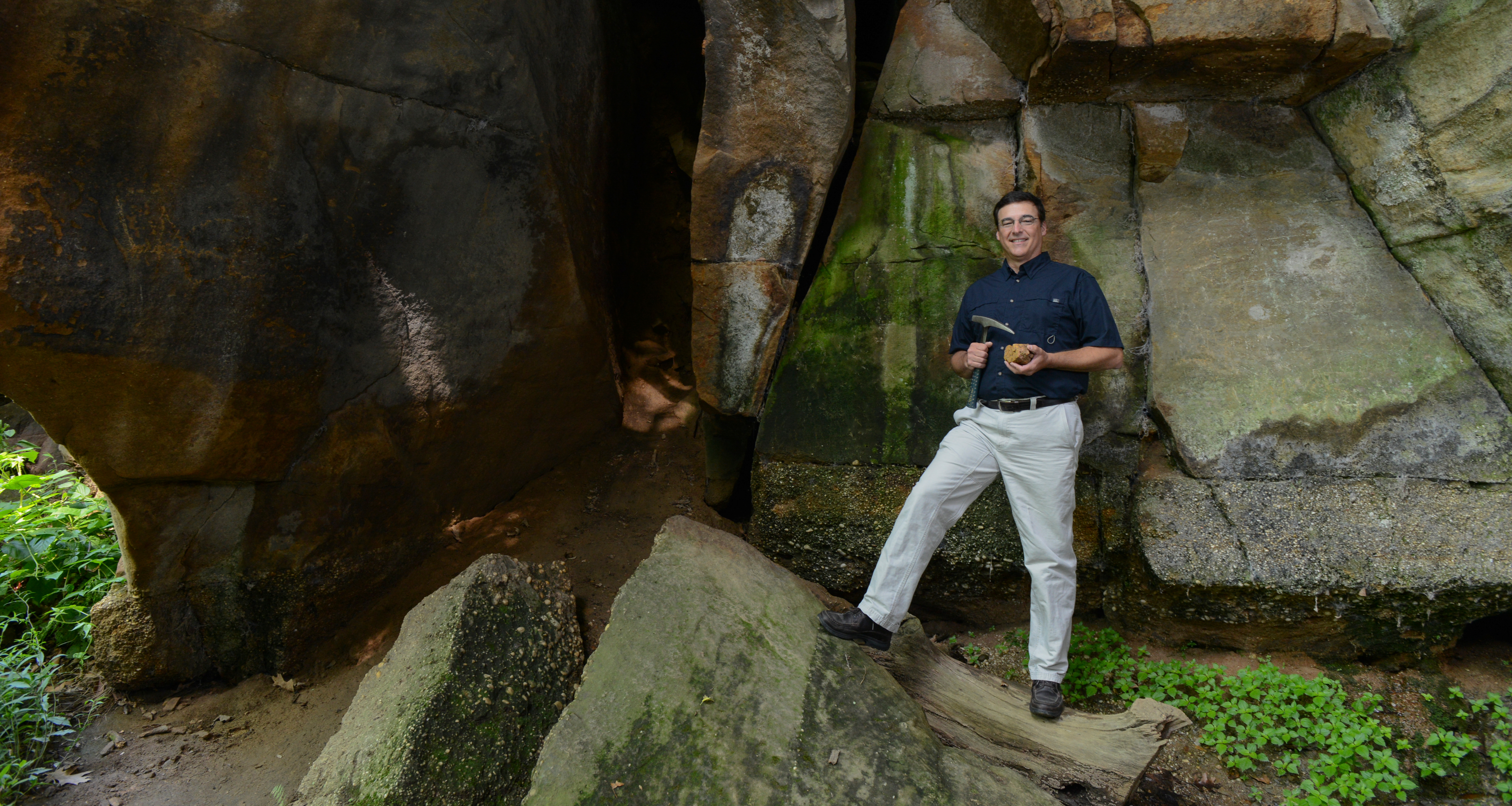Scholar of the Month
David Hacker
Associate Professor of Geology
College of Arts and Sciences
║┌┴¤═° at Trumbull
2000-present
David Hacker is associate professor of geology in the College of Arts and Sciences at ║┌┴¤═° at Trumbull. His research in structural geology focuses on detailed field mapping in the western United States to decipher the evolution of tectonic events and volcanism. His recent work has focused on geologic hazards associated with the emplacement of shallow level sub-volcanic magma chambers.
Recently, Hacker and two colleagues, Robert Biek of the Utah Geological Survey and Peter Rowley of Geologic Mapping Inc., made a monumental discovery, identifying one of the worldÔÇÖs largest known landslides located in southern Utah. The slide occurred more than 21 million years ago in an ancient volcanic field and covered an area greater than 1,300 square miles.
Their findings were published in the November 2014 issue of the journal Geology. Hacker explains that researching past landslides such as the Utah slide can assist disaster management experts and scientists in better preparing for future cataclysmic events.
He has co-authored a popular college textbook, ÔÇťEarthÔÇÖs Natural Hazards: Understanding National Disasters and CatastrophesÔÇŁ (2010). He also has published multiple peer-reviewed articles and geologic maps, and conducted mapping projects in collaboration with government agencies including the U.S. Geological Survey and the Utah Geological Survey. He is an invited speaker at many national and international conferences and workshops.
Prior to Kent State, Hacker worked as senior geologist/hydrogeologist for BJAAM Environmental Inc. and as a consulting geologist for petroleum companies.
Hacker received a Ph.D. in geology from Kent State, as well as a Master of Science and a Bachelor of Arts in geology from Miami University in Ohio.
About Kent StateÔÇÖs Scholar of the Month
Kent StateÔÇÖs Scholar of the Month recognizes faculty researchers and scholars whose recent work has had an important impact on their professional fields and has brought exposure to the university. Each month, a different college will have the opportunity to nominate a researcher/scholar for this recognition. There is also a month when a faculty member from the Regional Campuses will be featured.
The selection process is in the hands of the dean and his or her colleagues and faculty. Hence, this is recognition by the personÔÇÖs college colleagues that is then taken up by the university. The deans communicate the personÔÇÖs name to the Division of Research and Sponsored Programs for recognition as Scholar of the Month.



